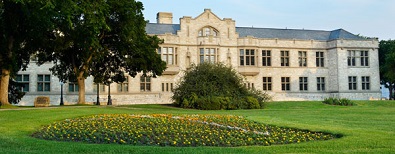Researchers from the University of Saskatchewan are hoping community aided research can help combat diabetes.
Dr. Sarah Oosman, acting director of the university’s School of Rehabilitation Science, is one of the lead researchers of the project – “Strong Bodies, Spirits, Minds, and Voices” Privileging Indigenous Knowledge to Guide Pediatric Type 2 Diabetes Prevention with First Nations and Métis Communities in Saskatchewan.
The goal of the project is to connect directly with Indigenous communities to co-create and implement an Indigenous-driven health plan for preventing Type 2 diabetes.
“We want to reframe our approach to health promotion and wellness research in ways that are relevant and meaningful to Indigenous communities in order to positively impact and influence wholistic wellness among Indigenous youth and their families, particularly as Type 2 diabetes continues to grow,” Oosman said.
According to Diabetes Canada, rates of diabetes in the Indigenous population are significantly higher than the rest of the country. The organization would point to Canada’s historic and continued colonial policies as one of the factors in the increased risk of Type 2 Diabetes.
Île-à-la-Crosse and James Smith Cree Nation were the first two communities to partner on the Usask research project. According to the university, several other communities, including Clearwater River Dënë Nation, La Loche, Sweetgrass First Nation, Little Pine First Nation, and Poundmaker Cree Nation, have also started engaging as partners.
“We have built relationships with several Knowledge Keepers who remind us that answers are already in the communities, and we must create space and opportunities to bring this knowledge to the foreground,” Oosman said.
Oosman went on to say early intervention is one of the most important factors in battling diabetes and says this intervention should be culturally-based health promotion informed by Indigenous knowledge.
“We feel very strongly that we need to do this work in a different way and that the guidance we receive from the Indigenous knowledge keepers, community members, and those with Type 2 Diabetes lived experience are essential.”
Oosman and her team were recently awarded nearly $2 million in funding over the next five years from the Canadian Institutes of Health Research (CIHR) to continue the research.
